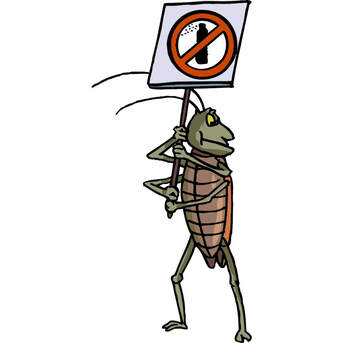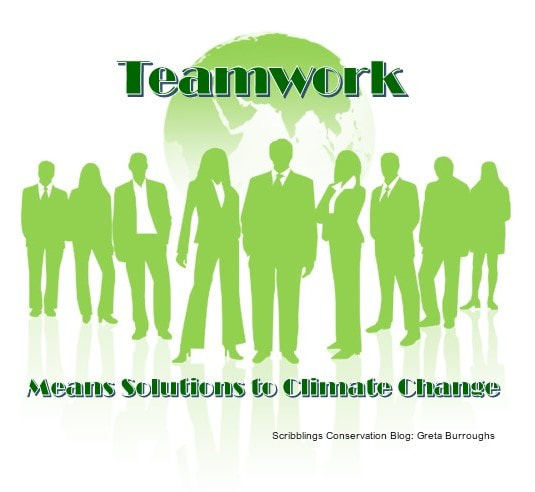Have you ever wondered what it’d be like if all the insects decided to go on strike? Could you blame them? Look at how humanity has treated them — polluting the air, water, and land, destroying native habitats, overusing pesticides, and even changing the climate — making it more and more difficult for the hardworking creatures to find food and shelter. If they unionized and buzzed/ flittered/ flew/ or crawled off, refusing to pollinate another plant until people started paying attention, would we listen to them? Hope so! If not, humanity would be the losers.
Insects are important because of their diversity and influence on the environment, agriculture, human health, and natural resources. They not only pollinate eighty percent of our planet’s trees, bushes, and crops, but they also play a necessary function in the health of the Earth’s ecosystems.
Ecosystems are comprised of living things such as plants, animals, and other organisms, nonliving features like rocks and dirt, and environmental factors such as temperature and humidity. Whether they’re in the rainforest, deserts, or prairies, all the elements within an ecosystem have evolved to work together for their mutual benefit.
While all organisms in the ecosystem are essential, the role played by insects is particularly crucial. According to National Geographic, there are about 1.4 billion insects for every human on Earth, and all of them play a significant role in the ecosystem as pollinators, seed dispersers, pest patrol, and decomposers.
Insects Keep Everything in Check
We are already familiar with the insect’s ability to pollinate most of our fruits, flowers, and vegetables. We wouldn’t have the abundant produce we rely upon without the pollinating services of insects. Plus, we need to add nuts, honey, coffee, tea, chocolate, silk, and other useful products they provide.
The relationship between plants and insects is very complex. For example, some plants can only be pollinated by a single species of insect. Other plants have adapted unique colors, shapes, and sizes to be more attractive to pollinators. In turn, pollinators have evolved characteristics over the millennia that make obtaining nectar more accessible and efficient, thereby allowing the bugs to visit and pick up pollen from more plants.
It’s tough work flying around from blossom to blossom, and the effort burns a lot of energy. Pollinators love the sweet rewards they sip at each stop but cannot live on nectar alone. Many insects enjoy munching on plants or are predatory or parasitic and feed on insects. Mother Nature’s form of pest patrol not only nurtures her winged friends but also keeps the populations of unwanted bugs and weeds down to a manageable level.
We must keep in mind that pollination isn’t the only way to ensure the propagation of plants, though. Industrious ants, beetles, and other ground-dwelling insects disperse fruits and seeds by muscling the food from its source to different points throughout the ecosystem. The small bits of food that aren’t eaten on the spot are transported elsewhere, with some tiny morsels falling by the wayside where the seeds and fruit can germinate. By using these earth-bound insects, plants ensure that their seeds are distributed over long distances without having to rely on the wind.
And you can’t keep an ecosystem tidy without the clean-up crew. These bugs feed on fungi, dead animals, decaying organic matter, and nearly any other recyclable garbage they encounter in their environment. Their labor as decomposers helps break down and dispose of wastes, dead animals, and plants that otherwise would accumulate in the ecosystem. Another bonus is that while they burrow through the soil, beetles and ants aerate the dirt creating nutrient-rich topsoil complete with channels for water to soak into the rich loam.
To maintain nature’s balance means there’s an unfortunate downside to being a bug. They can wind up as a mid-day snack for a hungry animal or bird. After all, insects are very delicious and nutritious.
Predatory insects eat a lot of pests, but a dragonfly will snatch beneficial insects as well, as do bats and some birds.
Birds depend on insects to provide nearly all their food. A single clutch of Carolina Chickadee chicks can feast on upward of 9,000 caterpillars in the weeks between hatching and taking flight.
Danger lurks on the ground as well from vertebrates such as lizards, frogs, toads, mice, and salamanders. It’s hard to stand by and watch a beautiful, delicate butterfly being eaten, but it’s all part of nature’s balance.
Conserving and Managing Insects in the Ecosystem
Insects are fundamental components of our ecosystems, where they perform many essential functions. Along with pollinating, pest control, and keeping the environment clean, they also make our world enjoyable. It’s fun to watch bees buzzing around and dragonflies patrolling for mosquitoes. Can you imagine how boring life would become without butterflies or lightning bugs brightening up the landscape? We benefit in so many ways by sharing our world with insects.
The management of ecosystems and their inhabitants in a sustainable manner is necessary for the survival of all organisms. Unfortunately, many folks lack appreciation for insects because they’ve never been told about the benefits of bugs. Likewise, they’re unaware that the consequences of a dying ecosystem can result in famine, threats to human health, and economic disruption.
Scientists predict that over forty percent of insect species could go extinct in the not-so-distant future due to habitat loss. Therefore, it’s up to us to educate, encourage, and empower ourselves and our neighbors to enhance local landscapes and yards with native vegetation and create habitats where insects can thrive. This simple act will slowly but surely restore the ecosystems to the way Mother Nature intended.


 RSS Feed
RSS Feed

